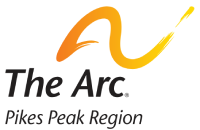About IDD
Intellectual & Developmental Disabilities (IDD)
IDD is the term given to describe a wide range of intellectual and developmental disabilities. Keep reading below to learn more.
I/DD is the term given to describe a wide range of intellectual and developmental disabilities. Keep reading below to learn more.
What Is An Intellectual Disability?
Intellectual disabilities occur before age 18. Individuals with intellectual disabilities experience limitations in two main areas:
- Intellectual functioning
- Adaptive behavior
These limitations effect the person’s everyday activities and social and conceptual skills. Many people with intellectual disabilities are mildly affected; this makes the disability hard to notice with visual cues alone. Intellectual disability is diagnosed through standardized tests of intelligence and adaptive behavior.
Many children receive a diagnosis or learning disability, developmental delay, behavior disorder, or autism instead of the intellectual disability. This makes it challenging to determine how many individuals have intellectual disabilities.
With support from family, friends and agencies including The Arc, over time many adults with intellectual disabilities can live independent, dynamic lives in their community.
Intellectual disabilities occur before age 18. Individuals with intellectual disabilities experience limitations in two main areas:
- Intellectual functioning
- Adaptive behavior
These limitations effect the person’s everyday activities and social and conceptual skills. Many people with intellectual disabilities are mildly affected; this makes the disability hard to notice with visual cues alone. Intellectual disability is diagnosed through standardized tests of intelligence and adaptive behavior.

Many children receive a diagnosis or learning disability, developmental delay, behavior disorder, or autism instead of the intellectual disability. This makes it challenging to determine how many individuals have intellectual disabilities.
With support from family, friends and agencies including The Arc, over time many adults with intellectual disabilities can live independent, dynamic lives in their community.

How is intelligence defined?
Intelligence refers to general mental capability. Intelligence involves the ability to reason, plan, solve problems, think abstractly and critically, comprehend complex ideas, learn rapidly, and learn from previous experiences. Intelligence is represented by Intelligent Quotient (IQ) score. This score is obtained from standardized tests given by trained professionals. Intellectual disability is believed to be present if an individual has an IQ score of 70 or below.
Intelligence refers to general mental capability. Intelligence involves the ability to reason, plan, solve problems, think abstractly and critically, comprehend complex ideas, learn rapidly, and learn from previous experiences. Intelligence is represented by Intelligent Quotient (IQ) score. This score is obtained from standardized tests given by trained professionals. Intellectual disability is believed to be present if an individual has an IQ score of 70 or below.
What is meant by adaptive behavior?
Adaptive behavior means behaviors and related skills needed for people to live independently and function safely in daily life. These behaviors include, but are not limited to: grooming, dressing, behaving safely in the home and community, following rules, managing money, making friends and taking responsibility for one’s actions.

Subscribe To Our Newsletter and SMS Reminders
The best way to ensure that you receive our newsletter, our event invitations, SMS reminders and other important information is to become a member of The Arc of the Pikes Peak Region.
The best way to ensure that you receive our newsletter, our event invitations, and other important information is to become a member of The Arc of the Pikes Peak Region.

